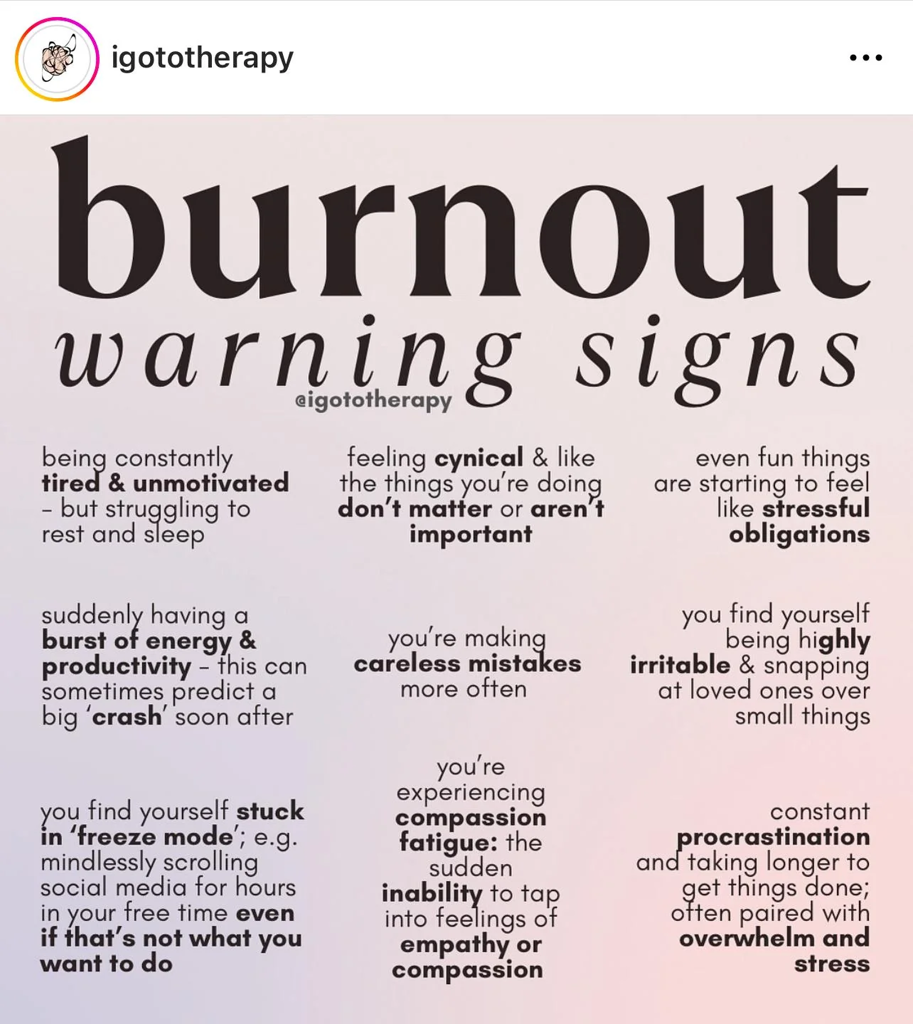this post was submitted on 29 Mar 2024
558 points (96.8% liked)
ADHD memes
10932 readers
518 users here now
ADHD Memes
The lighter side of ADHD
Rules
Other ND communities
- !adhd@lemmy.world - Generic discussion
- !ausomememes@lemmy.dbzer0.com
- !autism@lemmy.world
- !autisticandadhd
- !neurodivergence@beehaw.org
founded 2 years ago
MODERATORS
you are viewing a single comment's thread
view the rest of the comments
view the rest of the comments

I had the same feeling. In terms of contents, the examples seem to be fashioned after the Maslach Burnout Inventory but their description is a sometimes off and would fit depression better than burnout (which overlap, but the latter is work-specific). The MBI is also much more extensive and requires a more nuanced response to each example (not just yes/no).
Generally, you should never interpret these graphics as some kind of diagnosis. An actual diagnosis requires a trained therapist, who may use tools like the MBI to help with this but not as the sole foundation of the diagnosis.
Edit: The danger with these kinds of infographics is that they're simplified so much that basically anyone can recognize themselves in them. Most people feel at least some of these things occasionally. That's normal and doesn't automatically mean you're suffering from burnout.